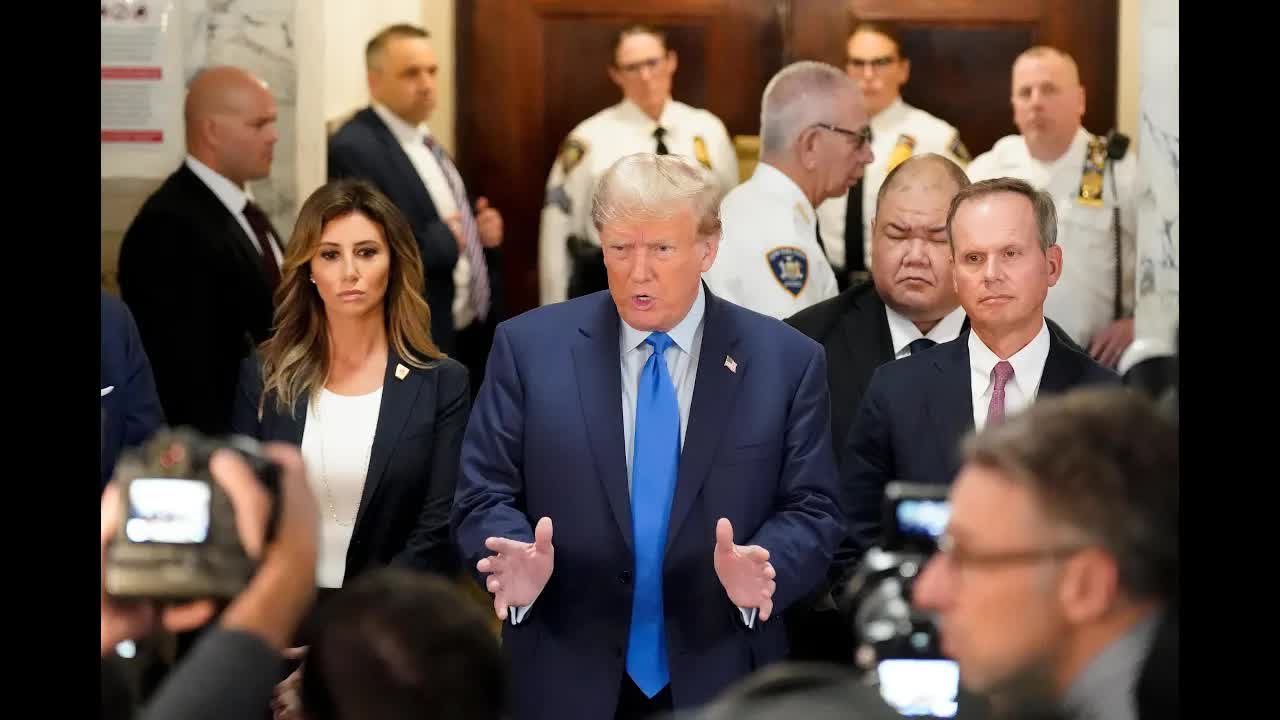In a dramatic turn of events, Donald Trump’s legal team has encountered another setback in their ongoing battle to shield the former president from prosecution related to the January 6 Capitol riots.
Judge Tanya Chutkan has just granted special prosecutor Jack Smith permission to submit an extensive 180-page brief that outlines Trump’s alleged criminal activities surrounding that fateful day.
This decision comes as the clock ticks down to the upcoming election, raising questions about the implications for Trump’s campaign.
The Supreme Court had previously instructed Judge Chutkan to sift through the evidence and determine which actions taken by Trump could be classified as official presidential conduct—thus granting him immunity—and which could lead to prosecution.
This delicate task is crucial, as it will help define the boundaries of Trump’s legal protections during his presidency.
Jack Smith’s request to exceed the standard 45-page limit for court filings was met with resistance from Trump’s legal team, who labeled the move as an act of “election interference.”
However, Judge Chutkan was quick to dismiss these claims, emphasizing her obligation to review all pertinent evidence in order to fulfill her judicial responsibilities.
In her concise six-page order, she methodically dismantled each of Trump’s complaints, highlighting their lack of merit.
One particularly striking moment came when Judge Chutkan addressed the defense’s concerns about the political ramifications of the trial.
She firmly stated that the potential impact of the proceedings on the election was irrelevant to the pre-trial schedule.
Her ruling reinforces the idea that legal processes must proceed independently of political considerations, a principle that is foundational to the justice system.
This situation raises eyebrows, especially considering that it was Trump’s own legal team that sought the Supreme Court’s ruling on presidential immunity.
Now, they find themselves in a contradictory position, arguing against the very scrutiny that follows from that ruling.
It’s almost as if they want the best of both worlds: protection under presidential immunity while simultaneously resisting the judicial examination of Trump’s actions.
The irony of this predicament isn’t lost on observers.
One might wonder if Trump’s attorneys are equipped with some sort of cognitive dissonance filter that allows them to overlook the contradictions in their arguments.
It’s akin to a mental gymnastics routine where they twist and turn their logic to fit their needs, often leading to absurd conclusions.
As the legal drama unfolds, the stakes are high.
The upcoming mini-trial is expected to be significant, as it will allow for a thorough presentation of evidence against Trump.
This trial will not only serve as a critical juncture for the legal proceedings but will also inform voters about the actions Trump took during and after the 2020 election.
Judge Chutkan’s ruling has set the stage for Jack Smith to present his findings, which could include witness testimonies and other evidence that paints a clearer picture of Trump’s conduct.
The process may involve back-and-forth exchanges between the prosecution and defense, with both sides making their cases regarding the nature of Trump’s actions.
While the exact timeline for these proceedings remains uncertain, one thing is clear: Judge Chutkan is committed to maintaining a schedule that prioritizes justice over political timelines.
Her determination to keep the trial moving forward is a testament to the legal system’s independence.
The implications of this trial extend beyond the courtroom.
As voters prepare to head to the polls, understanding the full scope of Trump’s alleged misconduct becomes increasingly important.
This trial could reveal critical information that influences public perception and voting decisions in the upcoming election.
As we await further developments, the legal community and the public alike will be watching closely.
The outcome of this mini-trial could have far-reaching consequences, not just for Trump but for the integrity of the electoral process itself.
The unfolding drama promises to be a pivotal moment in American politics, one that underscores the intersection of law and democracy.































